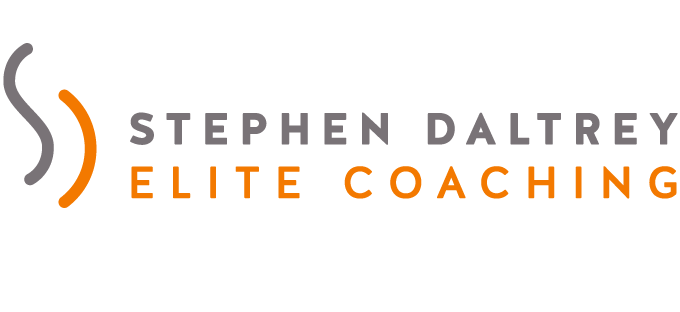 https://www.stephendaltrey.com/wp-content/uploads/2024/05/typewriter_1500x1000.jpg
1000
1500
16kadmin23
https://www.stephendaltrey.com/wp-content/uploads/2022/08/StephenDaltrey_logo_2_680x312.png
16kadmin232024-05-03 13:06:442024-05-03 13:29:11Transforming Leadership Series #6 – Words Matter
https://www.stephendaltrey.com/wp-content/uploads/2024/05/typewriter_1500x1000.jpg
1000
1500
16kadmin23
https://www.stephendaltrey.com/wp-content/uploads/2022/08/StephenDaltrey_logo_2_680x312.png
16kadmin232024-05-03 13:06:442024-05-03 13:29:11Transforming Leadership Series #6 – Words Matter
Transforming Leadership Series #1
Transforming from ‘Leader as Manager’ to ‘Leader as Coach’
Do you know the difference between an expert and a leader? It’s an important distinction that underpins many of the concepts of management and leadership.
When we start our careers, 90% of our activities are linked to ‘doing’ our expertise, and 10% will be people orientated. If you are an engineer, you spend 90% of your time designing, building, and improving things. Towards the end of your career, you may have become the engineering company’s CEO when 90% of your activities will be about people, and only 10% will be your original expertise.
In many workplaces, managers are mainly focused on doing – overseeing the day-to-day tasks such as budgets, planning, organising resources, etc. There is a point at which we switch from ‘doing’ to ‘being’. The step up to leadership involves using our humanity to inspire, motivate, connect and empower others by operating as a coach to our teams, enabling them to discover their own answers and way forward. Key to this is appealing to the team’s shared values and creating an inspiring vision. The ‘Leader as a coach’ needs to identify whether team members are staying in their comfort zone (operating from their expertise), whether they are at the crossover point between expert and leader or whether they have made the transition and are progressing on their leadership journey.
See this diagram:

I was asked to coach an expert in their field by an organisation wanting to support their employee’s transition into leadership. As the coaching progressed, she became aware that she did not want to become a leader; she wanted to remain as an expert. The insight enabled her to open a discussion with her employer on the best way to proceed in her career.
Transitioning from a manager into a leader requires empathy and emotional intelligence. Empathetic and emotionally intelligent leaders are great motivators and can nurture a team for success. One way to build your emotional intelligence is to be fully present in all your work interactions. Clear your mind of distractions (don’t allow your phone/emails/other issues to intrude) and give your colleague the gift of focused attention in the moment.
Tip – take a conscious breath before any interaction so that you can gently bring your mind into focus on the person in front of you.
To practice focused awareness, try this:
Sit down and relax; find an object of interest around you. Focus on it, drill into it, integrate it, analyse it. Do this for 2 minutes, then write down what you’ve noticed. Next, stand up and walk around for 60 seconds, and then focus on something else that captures your interest. This time, allow the object of your focus to come towards you like a beautiful sunset. Experience it impacting you (eg. if I threw a bucket of water towards you, the water would travel and hit you). Capture what you notice this time.
The first time around, you likely noticed facts about the object: shape, size, colour, and maybe even some judgements. The second time, you are more likely to notice your feelings about the object, perhaps images in your head or emotions triggered. In other words, it is an entirely non-judgemental experience.
The first exercise used directed awareness, which is how most people operate in the world: analysing, interrogating, and judging. In contrast, the second used undirected awareness, which incorporates experiencing and sensing. Undirected awareness can build your emotional intelligence, provide you with greater insight into the other person, and support their ability to identify their own solutions to challenges and opportunities.
Pay attention to your own body language, especially in challenging or potentially argumentative situations. Keep your body open (sit or stand up straight, look directly at the other person and don’t cross your arms) and nod or tilt your head while the other person talks. Respectful and positive gestures demonstrate your approachability and willingness to listen, learn and support.
Using simple techniques to bolster your emotional intelligence is an important step in transforming yourself from a ‘leader as manager’ into a ‘leader as coach’. Developing your ability will inspire your teams to achieve exceptional results.
LATEST ARTICLES
- Transforming Leadership Series #6 – Words Matter
- Transforming Leadership Series #5 – Inspiring Diverse Workforces
- Transforming Leadership Series #4 – 5 Ways for Leaders and Managers to become Effective Coaches
- Transforming Leadership Series #3 – Inspiring Leaders to Invest in Personal Skill Development
- Transforming Leadership Series #2 – Essential skills for leaders to excel as coaches
- Transforming Leadership Series #1 – Transforming from ‘Leader as Manager’ to ‘Leader as Coach’
- Wealth Psychology in the music & creative industries
- The Wisdom Of Resistance: Why Not Keeping New Years Resolutions Can Be Good For You
LATEST ARTICLES
 https://www.stephendaltrey.com/wp-content/uploads/2024/05/typewriter_1500x1000.jpg
1000
1500
16kadmin23
https://www.stephendaltrey.com/wp-content/uploads/2022/08/StephenDaltrey_logo_2_680x312.png
16kadmin232024-05-03 13:06:442024-05-03 13:29:11Transforming Leadership Series #6 – Words Matter
https://www.stephendaltrey.com/wp-content/uploads/2024/05/typewriter_1500x1000.jpg
1000
1500
16kadmin23
https://www.stephendaltrey.com/wp-content/uploads/2022/08/StephenDaltrey_logo_2_680x312.png
16kadmin232024-05-03 13:06:442024-05-03 13:29:11Transforming Leadership Series #6 – Words Matter
Transforming Leadership Series #5 – Inspiring Diverse Workforces








Leave a Reply
Want to join the discussion?Feel free to contribute!